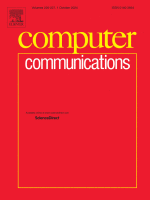Many students email me, and other faculty members, to request funding in the form of Research or Teaching Assistantships, or as hourly graders. I quite understand such requests, but sadly, my response is always that I have none to offer. This is not a reflection on your resume, but due to factors explained below (if you are interested). The bottomline is that I can do no more than mail you back the same information as below. Given how constrained my time and availability is, I often have to choose not to respond to you at all; I hope you understand the situation, and take this post as my blanket response.
TA positions are assigned by the department (specifically the Graduate Office of the department), not by individual instructors. The department uses our available TA slots mainly to fund PhD students; it is our primary means of supporting PhD students early in their career, when they typically do not have any research funding. Once the Graduate Office has decided the list of TAs, individual instructors such as myself can indeed express preference for some available TA for some course through the GradWatch system – but we cannot ask for somebody that has not been awarded TA funding to be awarded TA funding.
RA funding does become available from time to time, but like many other faculty I would only consider awarding such funding to research students after working with them initially for some time (while they are supported by TA positions), if such work is going well. And I tend to work exclusively with PhD students, not Master’s students (see further comments in the “Prospective Students” section).
Sometimes hourly grader slots do open up, and then they are indeed up to individual instructors to award. When I have any such available, I post them here, and invite interested students to submit resumes. At this time there is no such post, because I do not have any grader hours assigned to my courses for Fall 2023.
Rarely I have development jobs open in support for my research projects that carry an hourly pay appointment. Again, I would post them here and other university forums; if you do not see any, that is because I have none open at the moment.
All the best to you in your academic endeavors; unfortunately I cannot offer you any funding.




